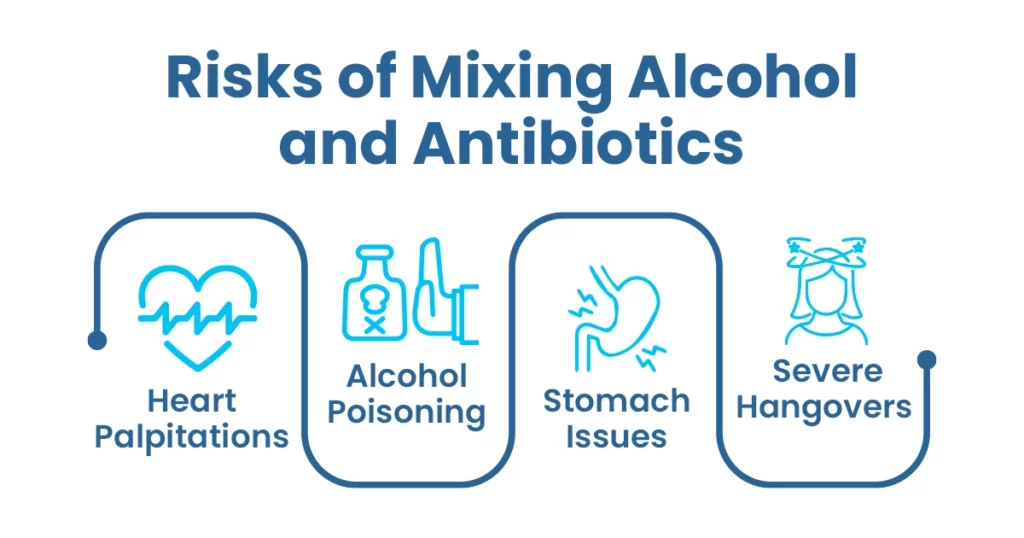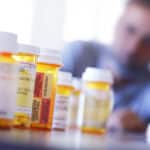You’re considering mixing antibiotics and alcohol for the first time. You must know the side effects, interactions, and risks of mixing alcohol with antibiotics. It won’t change your medical condition, but it may help you choose the antibiotic or alcohol for your particular situation. However, alcohol and antibiotics have different side effects and, when mixed, cause danger.

You can get help from The Haven rehab facility when you are on medication and want to quit alcohol. We are located in West Palm Beach, Florida, to treat drug or alcohol addicts. Below are some tips and information to remember when preparing to mix alcohol and antibiotics. They may not be mutually exclusive.
The Function of Antibiotics and Alcohol
While antibiotics can be beneficial in treating an infection, they can also cause side effects, such as an alcohol hangover.
Most antibiotics are prescribed for a short time, so waiting to drink alcohol while on these drugs can help reduce the chance of developing an alcohol tolerance and infection. Moreover, avoiding alcohol during treatment can help you heal faster. For more information, talk to your doctor or pharmacist.
Several antibiotics can interact with alcohol, including cefoperazone, an antifungal that treats salmonella infections. Drinking alcohol can worsen such side effects, and some antibiotics don’t explicitly warn against drinking while on them. The liver has the highest potential for adverse reactions to alcohol.
Antibiotics and alcohol can get metabolized by the body in different ways. The liver removes antibiotics in the fastest route, while alcohol prioritizes the metabolism of alcohol. In such a situation, mixing antibiotics with alcohol can cause severe effects on the liver, including toxicity.
Side Effects Of Antibiotics and Alcohol
Mixing alcohol and antibiotics can have various adverse effects. Both drugs can affect the body’s metabolism, making them ineffective in fighting infections.
Some antibiotics can even cause serious side effects, such as increased heart rate, blood pressure, and liver damage. Alcohol consumption also increases the likelihood of experiencing the side effects of antibiotics. In addition to the side effects of drinking alcohol, antibiotics can also cause several adverse effects on the liver and kidneys.
The vast majority of antibiotics are not contraindicated by alcohol. Even over-the-counter cough and cold remedies contain alcohol. While moderate alcohol use does not affect the effectiveness of antibiotics, it can delay the recovery process and reduce energy levels.
It is best to avoid alcohol altogether while taking antibiotics until you feel better. Otherwise, you may be unable to take the antibiotics effectively. You may even be able to take alcohol once you finish the last dose. Haven Detox rehab facility will help you maintain your recovery by giving you proper treatment.
Danger Interaction Between Antibiotics with Alcohol
Although the interactions between antibiotics and alcohol are rare, the effects of this drug combination are severe and could result in adverse events.
Antibiotics and alcohol affect each other through alterations in the PK/PD, which describes the drug-alcohol interaction. Alcohol is metabolized differently from other drugs, affecting their absorption and toxicity. Here are some examples of drug-alcohol interactions and what you should do if you suspect an interaction.
Some types of antibiotics and alcohol have similar side effects, and mixing them can increase the risk of adverse effects. Antibiotics such as Metronidazole (Flagyl), tinidazole (Tindamax), and sulfamethoxazole (Sulfamethoprim) should not be taken together, as they can cause flushing and increase blood pressure. Some antibiotics, such as tinidazole (Zyvox), interact with red wine and tap beer. In addition to these two everyday interactions, drinking alcohol while on an antibiotic can lead to toxicity and decrease the efficacy of the medication.
There are many dangers of mixing antibiotics and alcohol. While antibiotics have few adverse side effects, some interact with alcohol. For instance, Metronidazole used to treat vaginal and dental infections can cause severe diarrhea. Tinidazole can also lead to heart palpitations. Other antibiotics, such as Disulfiram, can increase the risk of alcohol poisoning and cause severe stomach and gastrointestinal problems. Using these drugs together can also result in a severe hangover.
While mixing alcohol and antibiotics may seem harmless, alcohol can have serious consequences. Most prescriptions for antibiotics warn against mixing them. Drinking moderately while taking an antibiotic may not have a negative effect.
However, if you’re already experiencing side effects, combining the two substances can cause more severe complications. While alcohol is not harmful to most people, drinking too much while taking an antibiotic can worsen their symptoms.
Consult With Your Doctor While Taking Alcohol with Antibiotics
While most common antibiotics do not interact with alcohol, some do. This is because some antibiotics interact with alcohol more negatively than others. Before mixing alcohol with your antibiotics, you should consult your doctor.
Alcohol can affect the immune system, your sleep, and your health. You should consult a compounding pharmacist if you are worried about the consequences. Your pharmacist can tell you which products are safe to mix with your current medications.
Brand Names of Medicines:
Antibiotics are in generic forms and sold under different brand names. Some may be sold as Gris-peg, Grifulvin, or another name.
Be sure to check the package before you mix your medications. It is also important to note that some antibiotics may not warn against alcohol use. If you must drink alcohol, you should wait until three days after you finish your last antibiotic dose.
Mixing alcohol and antibiotics can be unpleasant, but generally, you can resume drinking within three days. However, alcoholism also has so many disadvantages for your health. So, it is better to avoid alcohol and live a life of sobriety.
Alcohol Effects on Medicine
Taking antibiotics while drinking alcohol is not a good idea. The drugs may interact, and you could get sick from alcohol. Few medicines should not be taken with alcohol because they have the worse side effects. These include nitroimidazole agents, which treat bacterial infections.
Alcohol consumption can negatively impact your sleep. It may also have adverse effects on your liver when taking these medications.
Metronidazole And Tinidazole
It will help if you avoid drinking alcohol while taking the medicines, which include:
- Metronidazole–an antibiotic sometimes used to treat dental or vaginal infections, skin infections, infected leg ulcers, and pressure ulcers
- Tinidazole is an antibiotic that is sometimes used to treat many of the same infections as Metronidazole. It also helps remove Helicobacter pylori (H. pylori) from the gut.
Avoid alcohol for 48 hours after stopping Metronidazole and 72 hours after stopping tinidazole. Drinking alcohol with Metronidazole or tinidazole can cause very unpleasant side effects such as:
- feeling and being sick
- abdominal pain
- hot flushes
- fast or irregular heartbeat
- headaches
- feeling dizzy
- feeling sleepy
The FDA and manufacturers of most antibiotics do not recommend mixing alcohol with them. In fact, they don’t warn their users to avoid mixing alcohol with their prescription medications. This is because different antibiotics react differently with alcohol, and it’s not known whether or not mixing them will be harmful.
Frequently Asked Questions (FAQ)
Why shouldn’t I drink alcohol while I’m on antibiotics?
Because of some diseases and side effects, you should not take alcohol with antibiotics. You may get a severe reaction if you mix alcohol with antibiotics. It includes the side effects such as flushing, headache, nausea and vomiting, and rapid heartbeat.
If you want a healthy life, complete your medication course without mixing it with alcohol. Also, see the information on the prescription and act on it as it is better for your health.
Is it okay to drink beer on antibiotics?
It depends on what antibiotics you are taking and how much you drink. In general, antibiotics are okay with a bit of alcohol, although many can affect your taste/upset your stomach, so you won’t even feel like drinking.
Additionally, many antibiotics are detoxified by the liver; so does alcohol. So combining both won’t do your liver much good. It would be best if you do not drink alcohol while taking some antibiotics, but the doctor who prescribed them will be able to inform you accordingly.
How long before and after my antibiotic course can I drink alcohol?
You must need control or quit drinking alcohol for three days or 72 hours after finishing the process of your medication. It would help if you consult with your doctor and get help to avoid the effects of mixing alcohol-drug interaction.
Get Help Today from The Haven Detox
It seems helpful to talk to the doctor about your current medications. Are you seeking the best facility where you get a life free of drugs and alcohol? If yes, then Haven Detox is one of the best facilities in Florida which treats alcoholism or drug patients.
Our professionals deal very kindly with you to suggest not to mix the required medicine with the alcohol by telling you the side effects. You can also take detoxification to live a life free of alcohol. You can consult our compounding pharmacy if you are taking a specific antibiotic. Before going into a worse condition, take help from our specialists. Our residential treatment provides a comfortable and healthy environment.
We provide 24/7 hours services. Get more information by calling us at (561) 328-8627.






